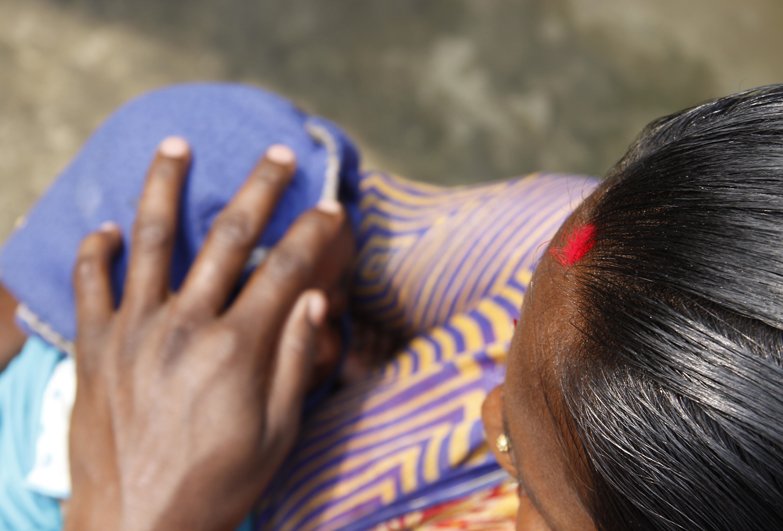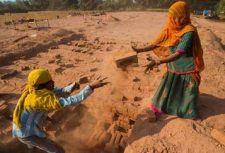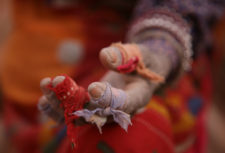Disclaimer: This article is more than 6 years old, and may not include the most up-to-date information or statistics. Please verify information with more recent sources as needed, and if you have any questions contact our Press Office.

Over 40 million people are estimated to be in slavery across the world, as forced marriage is officially recognised as a form of slavery for the first time.
19 September 2017
In a big campaign win for Anti-Slavery International, forced marriage has been included in the new estimates of people in slavery by the International Labour Organization (ILO).
Anti-Slavery has advocated for the recognition of forced marriage as a form for slavery for years. It was the first organisation to call for it back in 2013 with the report entitled ‘Out of the shadows’.
The ILO, together with the Walk Free Foundation and the International Organization for Migration (IOM), estimates that there are 40.3 million people in slavery worldwide, nearly doubling the figure from 20.9m in 2012.
There are estimated 15.4 million people in forced marriage, and the vast majority of these are girls and women. Over a third of the people who were forced to marry were children, of whom 40% were below fifteen at the time when marriage took place.
“We welcome the inclusion of this form of abuse in the slavery estimates.” said Anti-Slavery director Aidan McQuade. “When we first raised the issue of forced marriage in the discussions around the preparations for this estimate we were a lone voice, so we are pleased to see it included.”
“The treatment of millions of girls who were forced to marry against their will finally should be recognised for what it is – slavery, hidden under the guise of marriage.
“The toleration of forced marriage, particularly that of children, represents such a fundamental denial of the rights of millions of girls that it provides a fertile ground for the evolution of yet more egregious abuses such as the misogynistic depredations of Boko Haram and Islamic State.
“Ending forced marriage is critical to advancing and promoting the rights of women and girls, and hence in ending slavery,” said McQuade.
Another significant finding is that the figure of children in forced labour haven’t significantly changed since the last estimates, even though the numbers of child labour are systematically falling. That means that our development efforts are not targeting the most vulnerable children and communities.
“World leaders have to start implementing comprehensive policies tackling slavery, in particular those outlined in our Anti-Slavery Charter. It is time to start taking slavery seriously”, commented McQuade.




